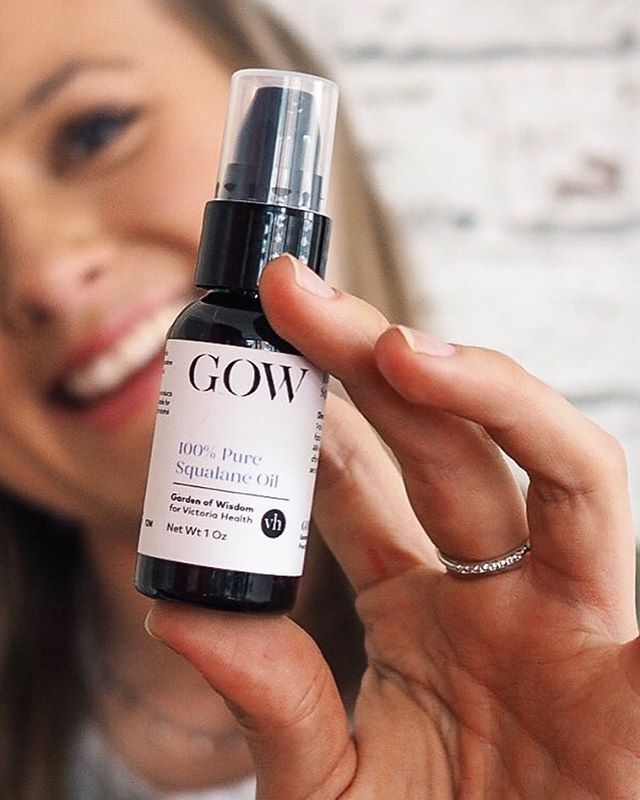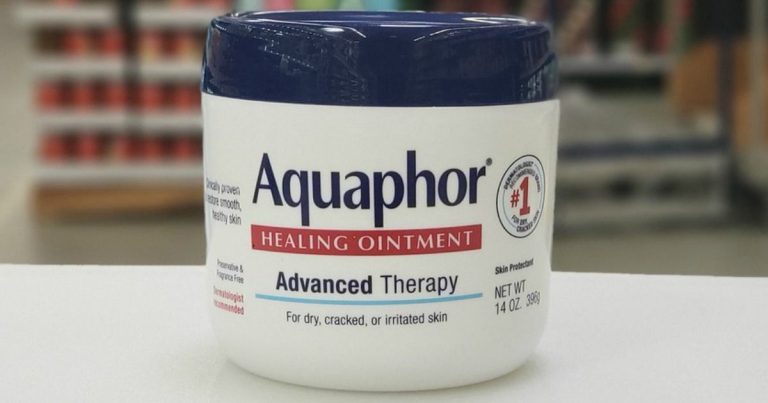Does Squalane Clog Pores?
Squalane oil has become an extremely popular skincare ingredient in recent years. Known for its lightweight moisture-boosting abilities, squalane is now found in everything from facial serums to moisturizers.
But its surge in popularity has brought up an important question – does squalane clog pores? This is crucial information for those with acne-prone or congestion-prone skin.
I did a deep dive into the research on squalane to find out the truth. Keep reading to learn all about this trendy new skincare ingredient.
After understanding the science behind squalane, I feel confident I can comfortably incorporate it into my skincare routine without worrying about clogged pores!
What Is Squalane?
Contents
First, let’s cover the basics. Squalane is a saturated and stable hydrocarbon that is found naturally in the skin’s sebum. It is produced in the body by the oxidation of squalene.
Structurally, squalane is very similar to squalene, but more stable and less likely to become rancid. This makes it better suited for use in skincare products.
Squalane used for cosmetic purposes is typically plant-derived from olive oil, wheat germ, rice bran, or sugar cane. It can also be derived from shark liver oil, but this is less common.
Benefits of Squalane Oil

So why has squalane become such a popular ingredient in skincare? Here are some of the main benefits of this versatile oil:
- Deep hydration – Squalane is an excellent emollient that helps skin retain moisture. This helps plump fine lines and wrinkles.
- Skin barrier support – By mimicking the natural oils found in skin, squalane strengthens the skin’s barrier function. This helps protect against environmental damage.
- Anti-inflammatory – Squalane has natural anti-inflammatory properties to help calm redness and irritation. This makes it suitable for sensitive skin.
- Antioxidant protection – The antioxidants in squalane scavenge free radicals and protect against oxidative stress that can accelerate skin aging.
- Non-comedogenic – Unlike many other richer oils, squalane has a lightweight texture that does not block pores. This makes it unlikely to cause breakouts.
With benefits like these, it’s no wonder squalane is used in so many different skincare products nowadays!
Is Squalane Comedogenic?
Now to get to the million dollar question – is squalane comedogenic? In other words, does this ingredient clog pores and cause acne?
According to research, squalane has very low comedogenicity. Most experts consider squalane to be non-comedogenic, meaning it does not clog pores.
Here’s a look at the evidence:
- In safety assessments, squalane scores a 0-1 out of 5 on the comedogenic scale. 0 is completely non-comedogenic, while 5 is highly comedogenic.
- Squalane has a smaller molecule size compared to other oils. This allows it to penetrate deeply into skin without blocking pores. Larger oils tend to sit on the surface and can cause congestion.
- Due to its stable structure, squalane is less likely to oxidize or become rancid compared to its precursor squalene. Oxidized oils are more comedogenic.
- In a clinical study on acne-prone skin, a squalane-based moisturizer did not cause any increase in lesions vs. no moisturizer use.
So while no oil is completely 100% non-comedogenic, squalane comes very close. Most people should be able to use it without worrying about clogged pores.
Of course, you always want to patch test and monitor closely when introducing new products to your skincare routine. But generally squalane gets the green light for acne-prone skin types.
How To Use Squalane for Clear Skin

If you have acne-prone skin, here are some tips for incorporating squalane safely:
- Use it sparingly – Only use a few drops of squalane at a time. Using too much could lead to greasiness and blocked pores.
- Focus on targeted areas – Use squalane on areas that need hydration but tend not to break out like the undereye region, lips, and dry spots.
- Layer under moisturizer – Apply squalane first before your regular moisturizer. This boosts moisture while letting the moisturizer seal everything in.
- Spot treat – Dab squalane on any flaky dry patches as needed throughout the day.
- Skip other oils – Limit use of other oils high on the comedogenic scale like coconut oil. Use squalane as your main facial oil instead.
- Cleanse properly – Double cleansing at night ensures squalane and other impurities are washed away, preventing congestion.
Using squalane strategically in this way allows you to enjoy its benefits without having to worry as much about clogged pores.
Squalane vs. Squalene: What’s the Difference?
You may also see squalene (note the extra “e”) used in skincare products. So what’s the difference between squalane and squalene?
Squalene is the naturally occurring precursor to squalane. It is produced in the body by the liver and also found in vegetables and olive oil.
The main differences are:
- Stability – Squalene is less stable and oxidizes more easily. This makes it more likely to cause irritation or breakouts. Squalane is more stable.
- Comedogenic rating – Squalene is more comedogenic (rating 2-3 on the scale) than squalane.
- Absorption – Squalane’s smaller molecule penetrates skin more efficiently than squalene.
So in summary, squalane is the better choice for acne-prone skin due to its enhanced stability, lower comedogenic rating, and improved absorption.
Benefits of Adding Squalane to Your Skincare Routine
Here’s a quick recap of the many benefits you can enjoy by adding squalane oil to your skincare routine:
- Increased hydration and moisture retention
- Strengthened skin barrier function
- Calming of redness and irritation
- Anti-aging antioxidant effects
- Protection against environmental damage
- Non-comedogenic lightweight texture
Squalane is versatile enough to use on all skin types. It plays well with other products and can enhance your skincare regimen.
Those with dry or mature skin will appreciate squalane’s intense moisturizing effects. Oily and acne-prone skin types can reap benefits too as long as squalane is used smartly.
No matter your skin type, make sure to patch test first before adding squalane oil to your regimen. Start with a small amount and increase slowly as tolerated.
Potential Side Effects of Squalane
Squalane oil is well-tolerated by most people. But there are some potential side effects to be aware of:
- Breakouts – Though rare, some acne-prone people may experience clogged pores or breakouts from using squalane oil. Discontinue use if this occurs.
- Irritation – Skin irritation may occur, especially if using a poor quality or impure squalane oil. Stick to high-grade sources from reputable brands.
- Allergic reaction – Allergies to squalane are very uncommon but possible. Signs include rash, itching, swelling, or hives.
- Sun sensitivity – Squalane does not cause photosensitivity on its own, but can potentially make skin more sensitive to UV damage when used with other actives like retinoids.
If you experience any negative reaction to squalane, stop using it right away. Seek medical attention if symptoms are severe.
Always do a patch test before incorporating squalane or any new product into your skincare routine. Introduce it slowly and one product at a time.
The Takeaway: Does Squalane Clog Pores?
So does squalane clog pores? After evaluating the scientific literature, I feel confident concluding that no, squalane does not appear to be comedogenic, meaning it does not clog pores or cause acne breakouts.
Squalane scores very low on the comedogenic scale, performs well in clinical studies, and has a lightweight structure that avoids congestion. This makes it a great oil even for acne-prone skin types.
Of course, reactions can vary person to person. I recommend patch testing first and introducing squalane slowly into your regimen. Use it strategically in targeted areas and layered under moisturizer.
Squalane offers incredible benefits like deep hydration, soothing of irritation, and enhancing the skin barrier. As long as it is used properly, most people should be able to enjoy these perks without worrying about clogged pores or breakouts.
Have you used squalane oil in your own skincare routine? Did you experience any congestion or acne as a result? Let me know in the comments!

Founded by Sophia Rodriguez, IGXO Cosmetics is a PETA-certified, cruelty-free, and vegan makeup brand.





